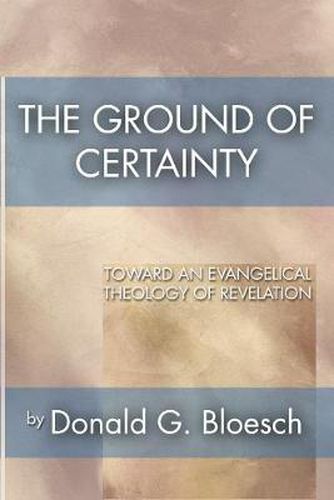Readings Newsletter
Become a Readings Member to make your shopping experience even easier.
Sign in or sign up for free!
You’re not far away from qualifying for FREE standard shipping within Australia
You’ve qualified for FREE standard shipping within Australia
The cart is loading…






This title is printed to order. This book may have been self-published. If so, we cannot guarantee the quality of the content. In the main most books will have gone through the editing process however some may not. We therefore suggest that you be aware of this before ordering this book. If in doubt check either the author or publisher’s details as we are unable to accept any returns unless they are faulty. Please contact us if you have any questions.
In this book Dr. Donald Bloesch sharply diverges from much traditional thinking on the relationship between theology and philosophy and suggests an alternative that is solidly anchored in biblical faith. Instead of seeing this relationship in terms of synthesis or correlation or even simple subordination, he calls for the conversion and transformation of philosophical meanings in the light of the biblical revelation. Philosophy can be of considerable aid to theologians, but they must take care not to let philosophical concepts determine the meaning of faith. Reason can be enlisted in the service of revelation, but it cannot establish the truth of revelation. Against the irrationalism of contemporary existentialist theology and the rationalism that has pervaded both scholastic orthodoxy (Catholic and Protestant) and liberal philosophical theology, Bloesch proposes an evangelical theology of revelation that seeks to employ reason in the task of understanding the faith. The author upholds not an autonomous reason but an obedient reason, and he shows that this ideal has support in the history of theology as well as in the Bible.
$9.00 standard shipping within Australia
FREE standard shipping within Australia for orders over $100.00
Express & International shipping calculated at checkout
This title is printed to order. This book may have been self-published. If so, we cannot guarantee the quality of the content. In the main most books will have gone through the editing process however some may not. We therefore suggest that you be aware of this before ordering this book. If in doubt check either the author or publisher’s details as we are unable to accept any returns unless they are faulty. Please contact us if you have any questions.
In this book Dr. Donald Bloesch sharply diverges from much traditional thinking on the relationship between theology and philosophy and suggests an alternative that is solidly anchored in biblical faith. Instead of seeing this relationship in terms of synthesis or correlation or even simple subordination, he calls for the conversion and transformation of philosophical meanings in the light of the biblical revelation. Philosophy can be of considerable aid to theologians, but they must take care not to let philosophical concepts determine the meaning of faith. Reason can be enlisted in the service of revelation, but it cannot establish the truth of revelation. Against the irrationalism of contemporary existentialist theology and the rationalism that has pervaded both scholastic orthodoxy (Catholic and Protestant) and liberal philosophical theology, Bloesch proposes an evangelical theology of revelation that seeks to employ reason in the task of understanding the faith. The author upholds not an autonomous reason but an obedient reason, and he shows that this ideal has support in the history of theology as well as in the Bible.